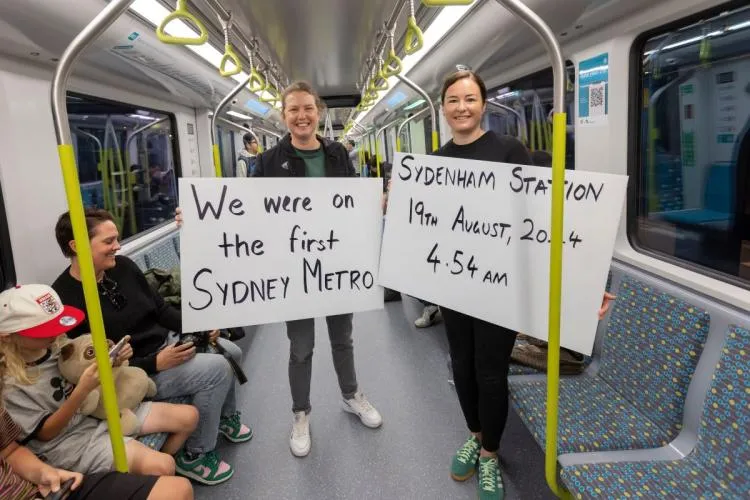According to the 2012 Congestion Index from satellite navigation specialists TomTom, motorists in Bristol and Belfast now face the slowest moving traffic in Britain. Even London’s infamous rush hour is less congested than peak-time jams in cities like Manchester and Nottingham, the annual global traffic figures found. The index shows that the average journey for drivers in Belfast takes 32.1 per cent longer than it would do if traffic moved freely, while in Bristol, journeys take 31 per cent longer. Londo
April 5, 2013
Read time: 3 mins
According to the 2012 Congestion Index from satellite navigation specialists 1692 TomTom, motorists in Bristol and Belfast now face the slowest moving traffic in Britain. Even London’s infamous rush hour is less congested than peak-time jams in cities like Manchester and Nottingham, the annual global traffic figures found.
The index shows that the average journey for drivers in Belfast takes 32.1 per cent longer than it would do if traffic moved freely, while in Bristol, journeys take 31 per cent longer. London is only third on the overall list, where the congestion charge has helped improve speeds so that a typical journey takes 27.5 per cent longer than it should.
But that is nothing compared to rush hour speeds says TomTom, which bases its annual report on an incredible five billion pieces of data fed to it every day.
In Belfast, traffic crawls along so slowly that a peak time journey takes a mind-numbing 71-72 per cent longer than a normal trip. In Bristol it is 56 per cent longer in the mornings but a frustrating 64 per cent slower in the evening. In other words, a journey that should take an hour takes 98 minutes.
London's morning rush hour is 56 per cent longer and its evening traffic flows are 55 per cent worse, but that's a better journey than those in Leeds/Bradford and Manchester for instance.
However, for any British drivers thinking they have it bad, be glad you are not trying to commute in the Russian or Turkish capitals.
TomTom's data from 161 cities worldwide throughout 2012 shows Moscow motorists have the worst traffic jams on the planet. The average journey is a painstaking 66 per cent slower than it should be, in Istanbul it is 55 per cent and in Warsaw, 42 per cent.
Marseille, Palermo, Paris, Rome, Stuttgart, Sydney and Los Angeles are all worse for drivers than anywhere in Britain, according to the TomTom Congestion Index.
The figures are regularly used to help local authorities plan their transport policy said the firm's head of traffic, Ralf-Peter Schafer. He said: "This detailed knowledge of the entire road network, helps businesses and governments make more informed decisions about how best to tackle and avoid congestion. Our traffic database contains over six trillion data measurements. This helps us determine which routes are the least busy and what times of day are best."
The index shows that the average journey for drivers in Belfast takes 32.1 per cent longer than it would do if traffic moved freely, while in Bristol, journeys take 31 per cent longer. London is only third on the overall list, where the congestion charge has helped improve speeds so that a typical journey takes 27.5 per cent longer than it should.
But that is nothing compared to rush hour speeds says TomTom, which bases its annual report on an incredible five billion pieces of data fed to it every day.
In Belfast, traffic crawls along so slowly that a peak time journey takes a mind-numbing 71-72 per cent longer than a normal trip. In Bristol it is 56 per cent longer in the mornings but a frustrating 64 per cent slower in the evening. In other words, a journey that should take an hour takes 98 minutes.
London's morning rush hour is 56 per cent longer and its evening traffic flows are 55 per cent worse, but that's a better journey than those in Leeds/Bradford and Manchester for instance.
However, for any British drivers thinking they have it bad, be glad you are not trying to commute in the Russian or Turkish capitals.
TomTom's data from 161 cities worldwide throughout 2012 shows Moscow motorists have the worst traffic jams on the planet. The average journey is a painstaking 66 per cent slower than it should be, in Istanbul it is 55 per cent and in Warsaw, 42 per cent.
Marseille, Palermo, Paris, Rome, Stuttgart, Sydney and Los Angeles are all worse for drivers than anywhere in Britain, according to the TomTom Congestion Index.
The figures are regularly used to help local authorities plan their transport policy said the firm's head of traffic, Ralf-Peter Schafer. He said: "This detailed knowledge of the entire road network, helps businesses and governments make more informed decisions about how best to tackle and avoid congestion. Our traffic database contains over six trillion data measurements. This helps us determine which routes are the least busy and what times of day are best."









